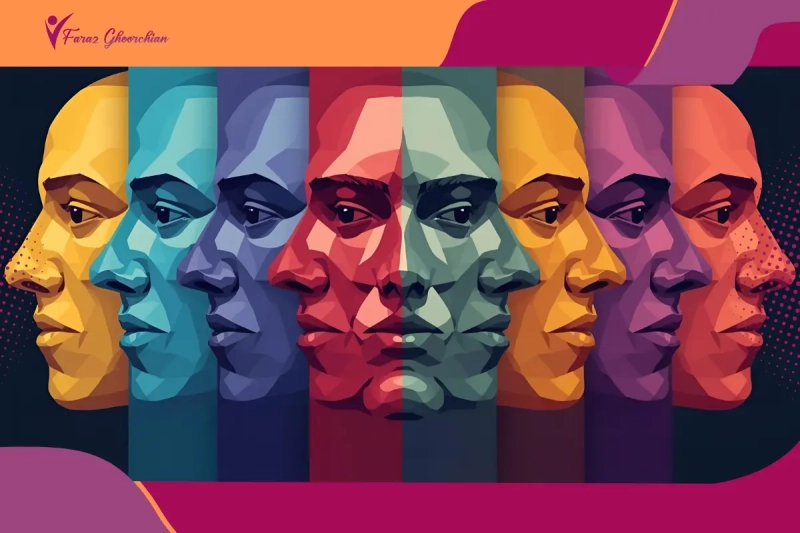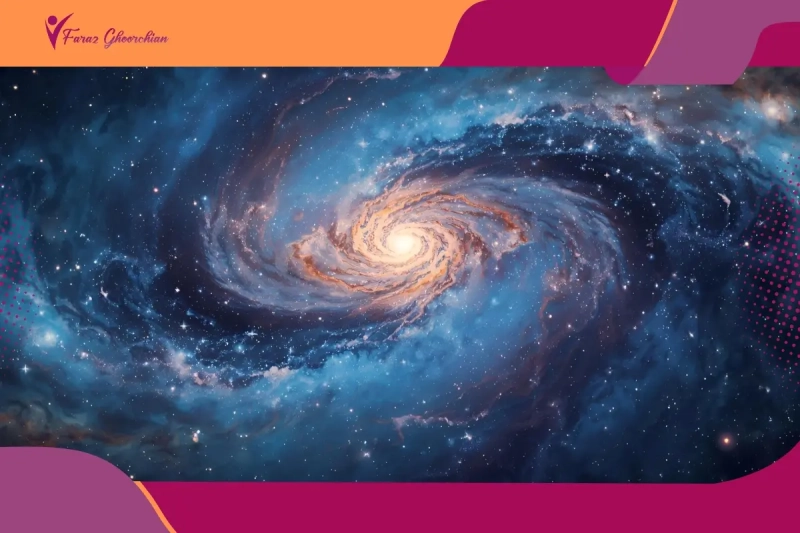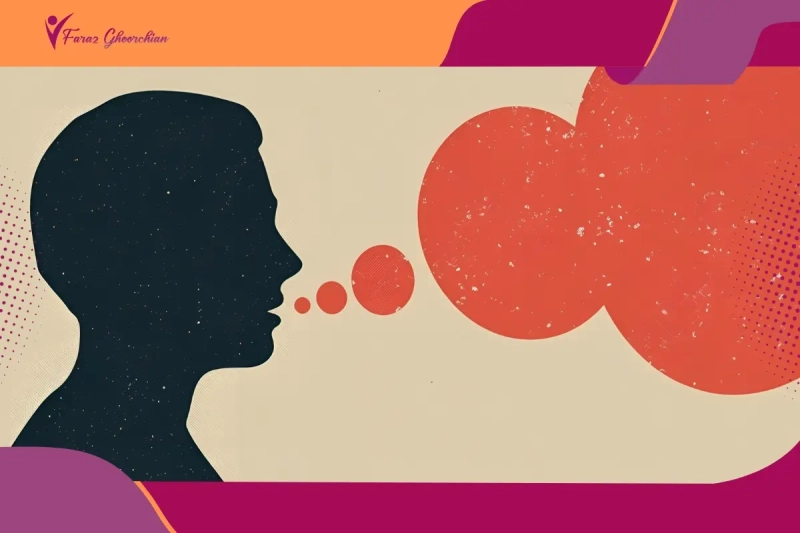One of the most often asked topics concerns sexual relationships. It is frequently stated that we have issues in our sexual relationships, but when we look further, we discover that the issue is not sex! So, what is the source of this problem?
What is lust?
A person suffering from sex addiction is addicted to sexual relations; yet, his issue is not limited to sexual relations, just as a gluttonous person’s problem is not limited to food. Eating and sex are both natural behaviors; the true issue with these two addictions is what we term Lust. Lust is a compulsive attitude which transforms a natural instinct into an unnatural desire. When we try to use food or sex to lessen isolation, loneliness, uncertainty, anxiety, and crisis, or cover up sensations and escape and fill inner and spiritual holes, in fact, we are building an unrealistic desire to abuse natural instincts. It is because of this that the sexual illness worsens
The truth is that lust’s dominion extends beyond the body and physical actions to encompass the movement of our thoughts, and it also serves as the controlling force for our pathological sexual activities. As a result, people may exhibit lust in more than one context. People who become addicted to drugs or other substances frequently learn that they are also addicted to bad attitudes and emotions.
Individual experiences associated with Lust
Someone described his experience: ((I recall the moment when the desire subsided, alcohol took the role of a tranquillizer, and anger erupted like a capped volcano. I used to imagine that regulating lust was like manipulating a jelly; when you press down on one area, it swells in another; it’s like trying to stop a rat from digging a tunnel in one spot of the soil, but it begins from somewhere else))
Lust is like poison to a sex addict. This is because, in the therapy and rehabilitation of sex addiction, the major issue is spiritual, not bodily. This is why altering attitudes and mindsets is very crucial.
Various definitions of lust
It is quite difficult to offer an explicit description of lust, however, lust operates as follows:
- Lust is a master who wants to dominate sexual relations whenever and however he wants.
- Lust tries to distort the sexual relationship by creating a mental and psychological disturbance, like a radio that ruins a romantic music by creating an abnormal disturbance.
- Lust does not indicate a sexual or physical relationship. Lust appears to act as a dream movie screen, separating a person from his own reality whether having sex with oneself or a loving partner. Lust drives a person to treat everyone equally, regardless of their relationship status, whether they are romantic partners or strangers.
- Lust leads to the rejection of one’s own and others’ identities. Lust is anti-reality; it opposes the true self.
- You can’t form a genuine connection with your partner when you’re in the throes of lust because, as a human being, they aren’t important; they’re just a sexual object and a source of disturbance.
- When desire is present, sex fails to develop a genuine connection since it is not based on becoming one with another.
- Lustful sex makes a genuine relationship difficult to form. Lust is a parasite that is imposed on sex; it may involve a variety of things such as memories, dreams, and fantasies.
These dreams involve sexual dreams, retribution, violence, or a mental image of another person.
1. Signs of high lust!
Some symptoms indicate that you have a lot of lust and should make an effort to limit it. A woman’s lust is no different from a man, and both genders can endure sexual dysfunction. Knowing the indicators of high lust can help you understand the meaning of lust. The following indicators are mentioned below:
- You have frequent and strong sexual dreams, wants, and actions that consume a significant amount of your time, and you believe they are beyond your control.
- You have a strong urge for particular sexual practices, and when you engage in them, you feel gratified, but also guilty and remorseful.
- You are unable to reduce or regulate sexual fantasies, impulses, and actions.
- You utilize lust, sexual practices, and masturbation to avoid other issues like loneliness, melancholy, anxiety, or tension.
- Despite knowing that certain sexual acts are extremely dangerous and have several negative effects, you continue to engage in them.
- You are experiencing difficulties in developing and maintaining healthy and secure relationships.
2.Reasons for Lust
Now that you’ve learned what Lust is, you should understand what creates the problem. Even though the origins of high lust are not completely understood, several factors appear to have a role. High lust can be caused by traumatic experiences, sadness, or a mental disease like bipolar disorder.
People who have been sexually assaulted as youngsters may be more susceptible to lust disorders. This issue is also influenced by family troubles and excessive levels of stress. Other risk factors for lust are:
- Easy access to pornographic content
- Drug and alcohol addiction.
- Mental condition, such as mood disorders or gambling addiction.
- A chemical imbalance in the brain.
3.The consequences of lust
Lust may have several harmful implications for both you and others. It is conceivable owing to high lust.
- Feel guilty, poor in self-esteem, and ashamed.
- Experience additional psychological issues such as sadness, acute anguish, anxiety, and suicide ideation.
- Ignore or lie to your husband and family.
- Your valuable relationships will be harmed.
- Lose focus, engage in dangerous sexual behavior, or lose your job.
- Have financial issues.
- Contract sexually transmitted illnesses.
- Abuse drugs or alcohol.
- Commit sexual crimes.
4. Ways to Control Lust
Self-help approaches are essential for controlling your lust. Psychological treatment might also help reduce lust. In reality, you must regulate and control your lust while also limiting risky sexual habits. The next sections will teach you how to regulate your lust.
- Learn what lust is and the many varieties of lust so you can understand what creates it and how to decrease it.
- Recognize events, ideas, and sensations that may cause high lust so that you can prevent and manage them.
- Address other psychological issues including addiction, depression, anxiety, and stress.
- If you utilize sexual activity to cope with unpleasant feelings, consider healthy alternatives such as exercise and enjoyable enjoyment.
- Learn to relax and handle stress.
- Feel appreciated.
Click here to read more about feeling important and how to achieve it.
Lust from different perspectives
Lust, according to this viewpoint, can exist in the absence of sexual activity. In fact, some claim that even though they are unable to have sex, they are nevertheless consumed with lust.
Lust is a drive that overpowers other impulses and causes individuals to behave abnormally. Instincts such as eating, drinking, working, anger, and so on. For example, a person may have a lust for resentment, which appears to be as intense as sexual lust.
Lust is not physical, and it is not a strong sexual urge.
Lust is a mental compulsion that disrupts instincts, and once permitted to function in one area, it seeks to affect other areas. Because desire is not sexual, it disregards all limits, including gender. When motivated by lust, sexual activities, and fantasies can take any course and are formed by a person’s experiences. As a result, the more a person is motivated by sexual lust, the further he is from having healthy sexual connections.
The challenge of a sex addict is living without lust. When Lust is valued in any form, it will eventually show itself in another form.
Lust in simple terms
Lust is the inability to say no.
Constantly becoming involved in risky sexual situations.
Being drawn exclusively to gorgeous individuals with interesting dreams.
Acting as if we’re always starving for sex.
Sexual fantasies.
Using pornographic footage.
Being reliant on a sexual relationship is similar to being addicted to drugs.
Losing your identity to your sexual partner.
The rise of stimulating mental tasks.
Thirst makes someone lusty.
A lack of emotional connection literacy
Failing in every endeavor to develop an emotional attachment
To learn how to enhance your relationship literacy and save your emotional relationship, click here.
Lust-related characteristics
- Lust enslaves a person and kills freedom.
- Lust is greedy and always craves more
- Lust is jealous and seeks to engulf and own the entire person.
- Lust preoccupies a person.
- Lust renders sex without lust difficult.
- Lust undermines the capacity to love.
- Lust destroys love and the ability to receive it.
In summary, we discovered that sex addiction stems from lust, not sexual relationships.
When the term lust is used, the first thing that comes to mind is sex, yet lust has other dimensions and hidden components that are not only sexual and physical.
Lust separates us from our actual selves and destroys our true ties, much as codependency is the cancer of self-loss.
The fundamental difficulty in sexual addiction is spiritual and moving away from our true self, thus to cure and recover from sexual addiction and any other sexual problem, it is vital to first recognize lust and modify our attitude because lust is a forced attitude. The fundamental problem with sexual addiction is spiritual and moving away from our true self; thus, to heal and recover from sexual addiction and any other sexual problem, we must first recognize lust and modify our attitude, because lust is a forced attitude that is an instinct. It transforms the natural into artificial desire.
Frequently Asked Questions
What Are the Signs of High Lust?
People who have frequent intense sexual fantasies, thoughts, and actions who are unable to control them struggle to build and maintain healthy relationships, and they utilize sexual behaviors to escape bad feelings. Their lust is heightened.
What produces lust?
High lust might be triggered by a psychiatric issue or unpleasant childhood memories. Access to sexual material, physiological imbalances in the brain, and addiction are all factors that contribute to this problem.
What are the effects of lust?
Lust may have a variety of negative repercussions, including low self-esteem, anxiety, sadness, harm to significant relationships, financial troubles, sexually transmitted illnesses, and drug or alcohol misuse

















19 Responses
Bravo essay, I learn useful notes about lust from it
Bravo on a job well done!
Well executed, now I realize what is lust exactly!
Bravo essay, I learn useful notes about lust from it
Outstanding! Nice job
what a great article
Fantastic Article, It was very useful and effective
Im Ngl to you!! Exceptional article thanks a lot
Bravo and excellent performance master ghoorchian!
grazie maestro, che articolo perfetto!!!
Actually Master, you have my heart with this Article!!! God bless you man of god!!
Wow! Greatest Article I’ve ever read in a while.
Bravo essay, I learn useful notes about lust from it.
Phenomenal artcle.
Impressive !
That was realy breath taking. Nice job 😉
outstanding
Well executed, now I realize what is lust exactly!
You’ve outdone yourself!
Exceptional article about lust, thanks!
You’re a star